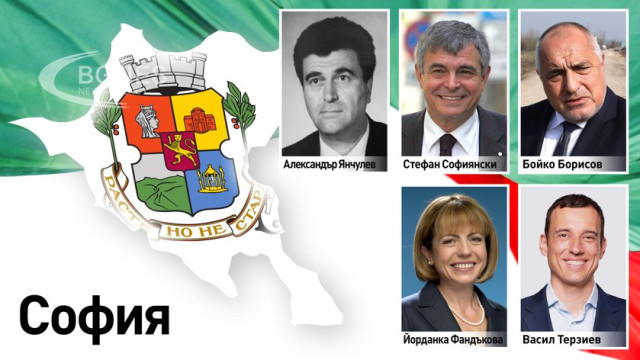Sofia "Ever Growing, Never Aging"... and voting less and less! The statistics from municipal elections held after the democratic reforms in 1989, as reported by BGNES, indicate exactly this.
Following the reforms, Alexander Yanchulev served as Sofia's first mayor, leading the city from 1991 until 1995. Voter turnout was 83.87% in the October 1991 municipal elections, which were held concurrently with the XXXVI National Assembly legislative elections. That same year, the mayor was chosen directly for the first time in the Sofia municipality's history. The capital's flag features the restored coat of arms, and September 17—the day of the great martyrs Faith, Hope, and Love, as well as their mother Sofia—is proclaimed as Sofia Day. The coat of arms of Sofia has been restored to its original form from 1900. However, the current Central Election Commission's records only go back to 2003, and the figures in their previous version did not indicate the total number of votes Yanchulev received to win the election.
On October 29, 1995, Vencislav Yosifov, who was nominated by an initiative committee, lost to Stefan Sofianski, who had garnered 215,673 votes in the first round of voting. Sofianski was nominated by the United Democratic Opposition. Yosifov garnered 209,154 votes, while Sofianski earned 284,001. Overall, about half a million people voted for mayor of Sofia then.
With 279,476 votes, Stefan Sofianski of the United Democratic Forces alliance won the first round of voting for mayor of Sofia once more in 1999.
Stefan Sofianski was the mayor of Sofia for the third time in 2003. He was nominated by the Social Democratic Party and received 114,530 votes in the first round and 246,161 votes in the second. Subsequently, the national voter turnout, at 57.45%, is likewise strong, not only in Sofia.
Bulgaria conducted local elections once more in 2005. Subsequently, Boyko Borisov emerged victorious as Sofia's mayor, garnering 68% of the vote as opposed to Tatyana Doncheva's 31%. Borisov received 222,577 votes to win the mayoral mandate.
In 2007, Boyko Borisov emerged victorious once more, taking office as mayor of Sofia with 53.68% of the vote, or 203,364, with a 36.51% voter turnout.
Yordanka Fandakova became Sofia's longest-serving mayor in 2009 after garnering 67% of the vote in the first round of elections with 24% of the vote cast. With 53.31%, or 247,140 votes, Yordanka Fandakova won the elections once more in 2011. With 238,500 votes, or 60.17% of the total, he secured the confidence of Sofians for the third time in 2015. She received 209,542 votes, or 49.98% of the total, to win in the second round of the 2019 municipal elections.
There was nearly a twofold decrease in the number of people who were willing to vote in the local elections of 2023 as a result of the political conflicts, the challenging process of forming a government, and the several political crises. During the first round of the Sofia elections, which pitted Vanya Grigorova (backed by the Bulgarian Socialist Party (BSP) and "United Left") against Vasil Terziev (nominated by the "we Continue the Change - Democratic Bulgaria"), there was a twofold decline in support: 80,875 Sofians voted for Grigorova, while 119,121 supported Terziev.
So, from 1991 to 2023, Sofians become less and less motivated to cast ballots: from almost 84% in 1991, when mayors were chosen with over 200,000 votes, to today's just over 30%, which is determined by half of the votes cast, or around 100,000. /BGNES



.jpeg)



